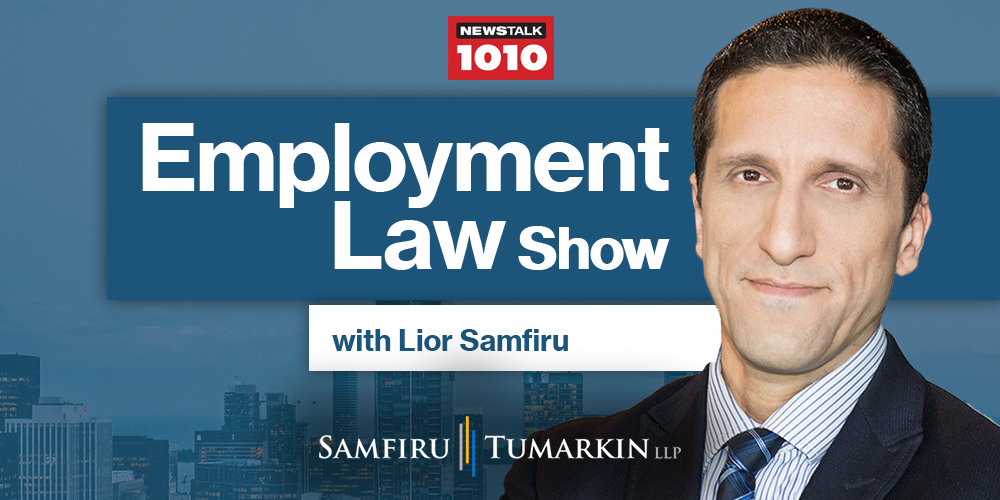Employment Law Show: Ontario – S10 E140

Episode Summary
Why do employers offer new contracts? Can you be forced to resign? Employment Lawyer Lior Samfiru, co-managing Partner and national practice leader at Samfiru Tumarkin LLP, answers those questions and more on the Employment Law Show.
LISTEN BELOW to Ontario’s premiere radio show about employment law and workplace rights featuring the province’s leading employment lawyers. You can hear the show live, Sundays at 1 p.m. ET, on Newstalk 1010 in Toronto, as the hosts take calls from listeners and provide vital answers to employees and employers.
Listen to the Episode
Show Notes
- Temporary agency employee let go: Individuals that have a regular job and do not have control over their schedules and compensation are considered an employee, not temporary employees. Ultimately, it does not matter if an employer has hired an individual through an agency. This classification is important to remember particularly in the event of termination.
- LEARN MORE
Employee vs. Independent contractors
- LEARN MORE
- Asked to sign a new employment agreement: It is important for employees, particularly those that have already been employed, to be wary of signing a new employment contract. Employment contracts typically contain terminology and clauses that seek to limit an employee’s rights and entitlements, like the right to adequate and full severance pay.
- Penalized after returning from taking sick leave: Employers cannot penalize or terminate employees as a result of taking sick leave or due to illness or injury; it is considered a human rights violation and is illegal. Employees who have been let go are still owed severance pay which will be based on their age, length of employment and position.
- Given working notice instead of severance pay: Employers are permitted to give the equivalent of severance pay in working notice to an employee. Often, however, employers do not give sufficient working notice to employees and must also give additional severance pay at the end of the notice period.
- A forced resignation by an employer: A resignation must be completely voluntary and conducted unilaterally by an employee. Employers who have forced or pressured an employee to resign have terminated an employee. Employees cannot be pressured to leave employment or retire by their employers and if they have been forced out of a job, are owed severance.
Need an employment lawyer?
- Pocket Employment Lawyer: Before you call a lawyer, use the Pocket Employment Lawyer to find out if you might have a case.
- Severance Pay Calculator: Discover how much severance pay you should get when you lose your job, used successfully by nearly 2 million Canadians.
- Watch our TV Shows: Get further clarity on your rights by watching our popular TV show episodes.




